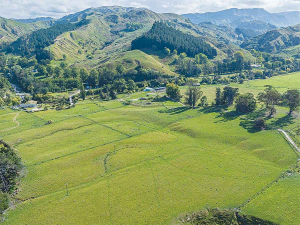Idea of killing cows to curtail methane emissions 'crazy'
Visiting US climate change expert Dr Will Happer says the idea of reducing cow numbers to greatly reduce methane emissions is crazy.
 The survey found that 95% of the 1,460 farmers surveyed think that reducing livestock methane won't impact global climate change.
The survey found that 95% of the 1,460 farmers surveyed think that reducing livestock methane won't impact global climate change.
According to a new farmer survey, many farmers are rejecting New Zealand’s current ruminant methane strategy.
The survey - prepared by NZ Farming, Groundswell NZ, and the Methane Science Accord – found that 95% of the 1,460 farmers surveyed think that reducing livestock methane won’t impact global climate change.
Additionally, 94% of farmers surveyed say they believe methane cuts should not be a necessary part of market access and 93% refuse to use methane inhibitors on their animals.
Duncan Humm of NZ Farming says there is growing unease in the sector around the ways in which methane inhibitors impact livestock.
“These interventions go against everything our farming systems stand for,” Humm says.
“How did we get this far down the track without consulting the very people expected to deliver these changes?” he adds.
Meanwhile, Helen Mandeno from the Methane Science Accord says that scientific research suggests that ruminants don’t contribute much to the warming of the planet.
“Professor David Frame has shown that New Zealand’s ruminants might, at worst, contribute four millionths of a degree Celsius warming per year,” Mandeno says. “It would take 250,000 years for that to amount to 1 °C.”
The three groups behind the survey say that despite New Zealand’s farmers being leaders in low-emissions food production, they feel ignored as methane reduction policies are pushed forward.
They say farmers want to know why money has been spent on methane tools without farmer consultation, why co-ops joined the AgriZero NZ public-private partnership without asking stakeholders, and who biotechnology tools like methane inhibitors are for if farmers don’t want them.
“Ruminant methane is a natural part of the carbon cycle – don’t punish farmers and their animals for a crime they didn’t commit,” the organisations say.
Dairy Women's Network (DWN) has announced that Taranaki dairy farmer Nicola Bryant will join its Trust Board as an Associate Trustee.
Rural Women New Zealand (RWNZ) says it welcomes the release of a new report into pay equity.
Red meat exports to key quota markets enjoyed $1.4 billion in tariff savings in the 2024-25 financial year.
Remediation NZ (RNZ) has been fined more than $71,000 for discharging offensive odours described by neighbours as smelling like ‘faecal and pig effluent’ from its compositing site near Uruti in North Taranaki.
Two kiwifruit orchards in the Bay of Plenty and one in Northland are this year's finalists for the Ahuwhenua Trophy competition.

OPINION: A mate of yours truly reckons rural Manawatu families are the latest to suffer under what he calls the…
OPINION: If old Winston Peters thinks building trade relations with new nations, such as India, isn't a necessary investment in…